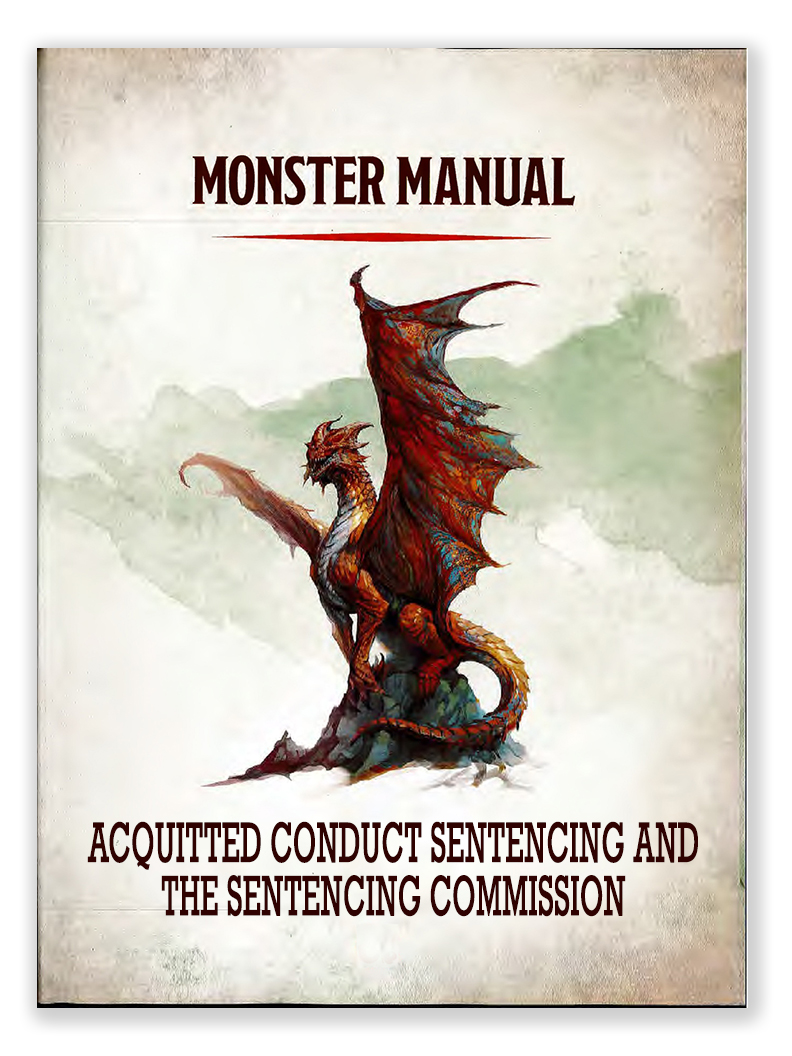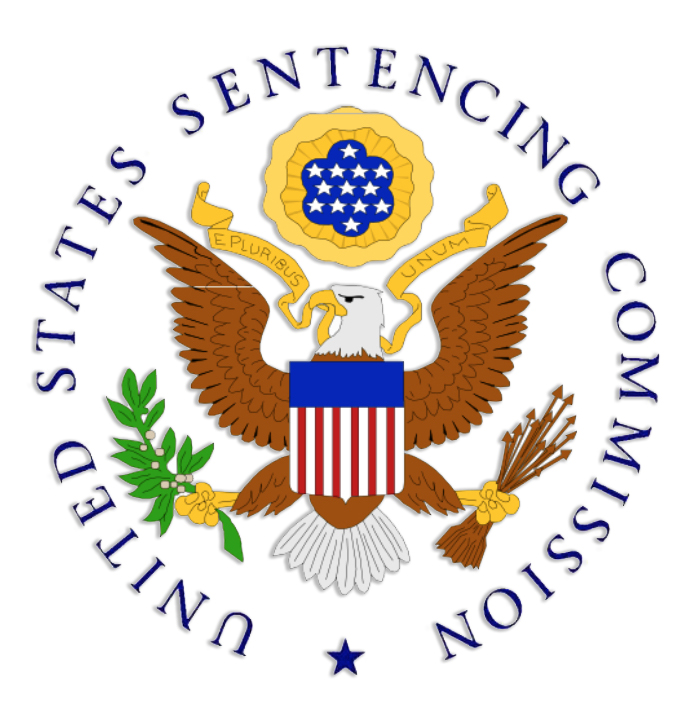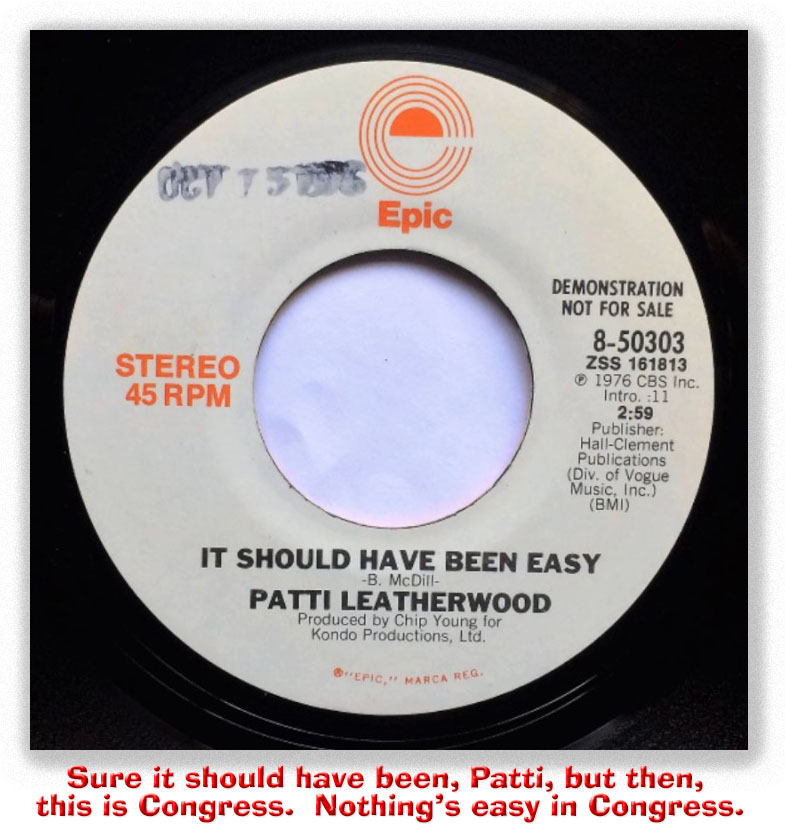We post news and comment on federal criminal justice issues, focused primarily on trial and post-conviction matters, legislative initiatives, and sentencing issues.

ACQUITTED CONDUCT ISSUE ARRIVES WITH A LOT OF BAGGAGE
The U.S. Sentencing Commission completed two days of hearings yesterday on what, if anything, it should do to rein in “acquitted conduct” sentencing, the Guidelines- and Supreme Court-sanctioned practice of relying on evidence that a defendant committed a crime even if a jury had found him or her not guilty of that offense.
 Jessie Ailsworth knows what that feels like. During this week’s hearings, he told the Commission he felt relieved when he heard the jury return 28 “not guilty” verdicts in his 1996 trial for crack cocaine distribution. But Jessie said “fairness went out the window” when he got hammered with 30 years for the seven counts on which he was found guilty.
Jessie Ailsworth knows what that feels like. During this week’s hearings, he told the Commission he felt relieved when he heard the jury return 28 “not guilty” verdicts in his 1996 trial for crack cocaine distribution. But Jessie said “fairness went out the window” when he got hammered with 30 years for the seven counts on which he was found guilty.
The judge based Jessie’s sentence on all of the counts in the indictment, including the 28 acquitted counts.
“I was very angry for a long time,” Jessie told the Commission. “I felt like the system failed me. I really believe that the jury did their best. They took their time, wrote notes, asked questions, and reached their verdicts. But, when I was sentenced, the court sent me to prison based on the jury’s acquittals. I felt like the system didn’t just fail me, it also failed my jury. We all knew what the jury was trying to do, and when I was sentenced, I wondered why we had even spent all those days with the jury, if at the end of it all, their verdict didn’t matter.”
Jessie was one of 15 witnesses testifying over the two days. Others included judges, probation officers and advocates. Judge Deborah Cook of the 6th Circuit Court of Appeals drew a distinction between “the important distinction in the proof necessary for convicting versus sentencing… That is, so long as the defendant receives a sentence at or below the statutory maximum set by the jury’s verdict, the district court does not abridge [a] defendant’s right to jury by looking to other facts, including acquitted conduct, when sentencing within that statutory range.”
 Ohio State University law professor Doug Berman, writing in his Sentencing Policy and the Law blog yesterday, explained how the question is stickier than either Jessie or Judge Cook might think. Prof Berman wrote that “rights directed at a balanced and thorough process — in other words, rights that support accuracy concerns or that tend to put the prosecution and defense on a more even playing field — do apply at sentencing. Rights that offer the defendant special protections — such as those that automatically resolve errors in the defendant’s favor or primarily protect the defendant’s autonomy — do not apply at sentencing. Framed only a bit differently, one might see concerns for sentencing “accuracy” to be a kind of Crime Control concern, and one that would counsel against preventing judicial consideration of acquitted conduct. But the jury trial right is fundamental to our nation’s vision of Due Process and our commitment to “defendant special protections,” and that’s surely why many are troubled by any judicial sentencing process that functionally disregards a jury’s decision to acquit on certain charges.”
Ohio State University law professor Doug Berman, writing in his Sentencing Policy and the Law blog yesterday, explained how the question is stickier than either Jessie or Judge Cook might think. Prof Berman wrote that “rights directed at a balanced and thorough process — in other words, rights that support accuracy concerns or that tend to put the prosecution and defense on a more even playing field — do apply at sentencing. Rights that offer the defendant special protections — such as those that automatically resolve errors in the defendant’s favor or primarily protect the defendant’s autonomy — do not apply at sentencing. Framed only a bit differently, one might see concerns for sentencing “accuracy” to be a kind of Crime Control concern, and one that would counsel against preventing judicial consideration of acquitted conduct. But the jury trial right is fundamental to our nation’s vision of Due Process and our commitment to “defendant special protections,” and that’s surely why many are troubled by any judicial sentencing process that functionally disregards a jury’s decision to acquit on certain charges.”
Prof Berman suggests (without endorsing this outcome) that if factual accuracy is paramount at sentencing, the judge will consider acquitted conduct in all its glory. This, of course, is a slippery slope. How about evidence that the judge suppressed and the jury thus never heard? How about proffers (attorneys telling the judge what their witnesses would have said if allowed to testify)?
If due process (protecting a defendant’s rights) is the correct model, then a jury’s acquittal on any particular count is ‘game, set, match’ for sentencing. This is at the expense of accuracy and the core legal principle, first enunciated by Marcus Tullius Cicero two millennia ago, to “let the punishment fit the crime.”
The “due process” model, too, is a slippery slope. After all, “acquitted conduct” sentencing is only a concern in the 2-3% of federal prosecutions that actually go to trial. We’re talking about elephants when the issue should be all animals that are not elephants. For the overwhelming 97% of cases in which the defendant pleads guilty, the Guidelines permit sentencing on “related conduct.” Related conduct can be found by the court only by a fairly squishy “preponderance of the evidence” standard, and the government may meet that standard with hearsay evidence and fuzzy math from witnesses the defendant has no right to confront. In drug and fraud prosecutions especially, where the amount of drugs or amount of loss drives the Guidelines sentencing range, a “due process” model should demand that standards for determining facts at sentencing provide the same “reasonable doubt” and 6th Amendment right of confrontation that a defendant enjoys during the conviction phase.
Prof Berman observed that as he watched the Commission’s hearing “explore[] many of the devilish details, it was clear how acquitted conduct’s intricacies may largely explain why past Commissions have avoided these issues as a policy matter and why the US Supreme Court avoided these issues as a constitutional matter since its 1997 Watts decision.”
 Speaking at a symposium at Ohio State last Monday, Judge Carlton Reeves, chairman of the Sentencing Commission, said that the Commission took up acquitted conduct “out of deference to the Supreme Court” after it denied certiorari in McClinton v. United States and said, “Well maybe the Sentencing Commission ought to look at it.”
Speaking at a symposium at Ohio State last Monday, Judge Carlton Reeves, chairman of the Sentencing Commission, said that the Commission took up acquitted conduct “out of deference to the Supreme Court” after it denied certiorari in McClinton v. United States and said, “Well maybe the Sentencing Commission ought to look at it.”
Earlier, in a Sentencing Commission news release, Judge Reeves said, “When the Supreme Court tells us to address an issue, the commission listens. From continuing the use of acquitted conduct to restricting (or even eliminating) its use in sentencing, all options are on the table.
Sentencing Commission, Public Hearing on Acquitted Conduct (March 6-7)
Sentencing Policy and the Law, USSC hearings on acquitted conduct: the devilish details amid a fundamental criminal process debate (March 6)
Kansas Reflector, Kansas man says prison sentence based on acquitted conduct was ‘ultimate betrayal’ (March 6)
– Thomas L. Root







